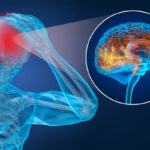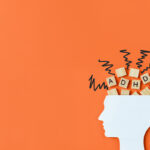Attention Deficit Hyperactivity Disorder (ADHD)
Attention Deficit Hyperactivity Disorder, usually referred to as ADHD, is a commonly diagnosed mental disorder, often discovered in childhood. According to the Diagnostic and Statistical Manual of Mental Disorders, Ed. V, (DSM-V), ADHD is defined as “a disruptive behavior disorder characterized by the presence of a set of chronic and impairing behavior patterns that display abnormal levels of inattention, hyperactivity, or their combination.” Fully 60 percent of patients identified as suffering from ADHD in childhood continue to display symptoms as adults. They represent about four percent of the adult population.
This disorder is also called Attention Deficit Disorder (ADD) because the patient has trouble focusing and completing a given task. As the name of the disorder suggests, patients not only can’t concentrate, but suffer from inattention and hyperactivity.
Ritalin and other neuro-chemical altering drugs are often given to alleviate the symptoms of ADHD on a temporary basis. In contrast to pharmaceutical therapy, neurofeedback has no side effects and offers longer term relief from the behavorial and learning challenges associated with this condition.
Traumatic Brain Injury (TBI)
TBI can be caused by many different circumstances – accidents, assaults, gunshots, falls and more. Every year approximately 1.4 million people suffer some kind of traumatic brain injury. Most TBI patients are first treated in hospital emergency rooms with more than 230,000 requiring hospitalization and another 50,000 dying of their injuries.
Treatment for TBI is complex and, depending on the injury, long term, perhaps even lifelong. Recently, neurofeedback has gained significant respect and support from mainstream medical authorities as one of the treatment resources considered for TBI. It’s often used in connection with other physical, pharmaceutical and psychological therapies.
Depression
It is estimated that over 17 million American adults suffer from clinical depression annually. According to the National Institute of Mental Health, depression is a common but serious illness, and most people who experience it need treatment to get better. Manifested in several different forms, depression can be affected, perhaps even caused by, genetics, environment, alterations in biochemistry, or an illness of mind or body. In short, depression, like most illnesses involving the brain, is as individual as the people who have it. Whatever its origin, depression not only impacts all aspects of the patient’s life but the lives of their family, friends, and co-workers.
Neurofeedback can be used to relieve the symptoms of depression on its own or in conjunction with psychotherapy and/or treatment with pharmaceuticals.
Post-Traumatic Stress Disorder (PTSD)
Post-traumatic stress disorder (PTSD) is a psychological condition often associated with war time experiences and injuries but can in fact be triggered by any terrifying event. It’s experienced as a series of symptoms that may include constant thoughts of the event, flashbacks, nightmares and an overwhelming sense of anxiety.
Symptoms often abate with time but in some severe cases they seem to worsen. Sometimes victims suffer for months or even years. In recent years, the U.S. Army and Navy have found neurofeedback training particularly helpful in treating veterans suffering PTSD as a result of their experiences in the Iraq and Afghanistan wars.
Insomnia and Other Sleep Disorders
Chronic and debilitating sleep disorders affect at least 40 million Americans each year and another 20 million suffer from occasional problems sleeping. While pharmaceutical treatments abound, they can often be addictive and/or interfere with the ability to function at top performance during the day. As a drug-free alternative neurofeedback has proven to be highly effective for a large percentage of sufferers. Neurofeedback helps the patient train the brain to increase slow brainwave activity and/or normalize the brain’s regulation of sleep. To begin treatment, a complete sleep assessment is helpful and discontinuing stimulants such as caffeine is encouraged.
Migraines
A migraine is not just a bad ache in the head. It may be experienced as an intense pulsing in one area of the head, but the misery it causes includes nausea and vomiting as well as a painful sensitivity to light and sound. The pain may last for hours or even days and be so debilitating the patient must stay in bed. Some people find the headache is preceded by warning symptoms which may be experienced as a tingle in an arm or leg or light flashes. Medication can relieve the frequency and severity of the attacks for some but not all. Neurofeedback has also proven to be effective and there is no risk of side effects.




